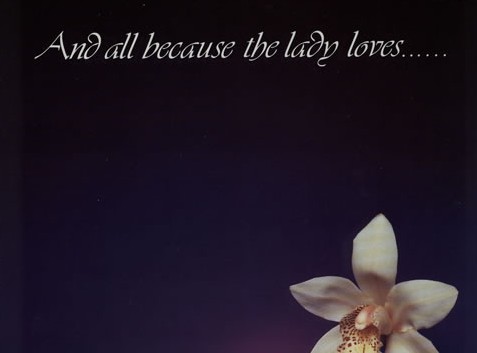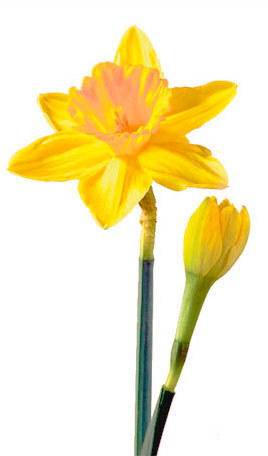
Want to become a writer? Need some tips or advice? Check out these words of wisdom from the experts …
Write what should not be forgotten.
— Isabel Allende
Being a poet is one of the unhealthier jobs–no regular hours, so many temptations!
— Elizabeth Bishop
First, find out what your hero wants, then just follow him!
— Ray Bradbury
I believe more in the scissors than I do in the pencil.
— Truman Capote
My own experience is that once a story has been written, one has to cross out the beginning and the end. It is there that we authors do most of our lying.
— Anton Chekhov
I’ve always believed in writing without a collaborator, because when two people are writing the same book, each believes he gets all the worries and only half the royalties.
— Agatha Christie
Writing is an adventure.
— Winston Churchill
Every great and original writer, in proportion as he is great or original, must himself create the taste by which he is to be relished.
— Samuel Taylor Coleridge
My task…is, by the power of the written word to make you hear, to make you feel – it is, before all, to make you see. That – and no more – and it is everything.
— Joseph Conrad
A writer without interest or sympathy for the foibles of his fellow man is not conceivable as a writer.
— Joseph Conrad
Books aren’t written, they’re rewritten. Including your own. It is one of the hardest things to accept, especially after the seventh rewrite hasn’t quite done it.
— Michael Crichton
People do not deserve to have good writing, they are so pleased with bad.
— Ralph Waldo Emerson
It begins with a character, usually, and once he stands up on his feet and begins to move, all I can do is trot along behind him with a paper and pencil trying to keep up long enough to put down what he says and does.
— William Faulkner
Find the key emotion; this may be all you need know to find your short story.
— F. Scott Fitzgerald
You have to develop a conscience and if on top of that you have talent so much the better. But if you have talent without conscience, you are just one of many thousand journalists.
— F. Scott Fitzgerald
I am irritated by my own writing. I am like a violinist whose ear is true, but whose fingers refuse to reproduce precisely the sound he hears within.
— Gustave Flaubert
A novel must give a sense of permanence as well as a sense of life.
— E. M. Forster
Suspense: the only literary tool that has any effect upon tyrants and savages.
— E. M. Forster
You can be a little ungrammatical if you come from the right part of the country.
— Robert Frost
There’s no money in poetry, but then there’s no poetry in money either.
— Robert Graves
It’s better to write about things you feel than about things you know about.
— L. P. Hartley
Nothing you write, if you hope to be any good, will ever come out as you first hoped.
— Lillian Helman
Easy writing makes hard reading.
— Ernest Hemingway
The first draft of anything is shit.
— Ernest Hemingway
Prose is architecture, not interior decoration.
— Ernest Hemingway
To write fiction, one needs a whole series of inspirations about people in an actual environment, and then a whole lot of work on the basis of those inspirations.
— Aldous Huxley
Half my life is an act of revision.
— John Irving
Writing is not primarily escape, but use.
— Henry James
The most valuable of all talents is that of never using two words when one will do.
— Thomas Jefferson
It is advantageous to an author that his book should be attacked as well as praised. Fame is a shuttlecock. If it be struck at one end of the room, it will soon fall to the ground. To keep it up, it must be struck at both ends.
— Samuel Johnson
Write in recollection and amazement for yourself.
— Jack Kerouac
I try to create sympathy for my characters, then turn the monsters loose.
— Stephen King
Any word you have to hunt for in a thesaurus is the wrong word. There are no exceptions to this rule.
— Stephen King
Close the door. Write with no one looking over your shoulder. Don’t try to figure out what other people want to hear from you; figure out what you have to say. It’s the one and only thing you have to offer.
— Barbara Kingsolver
Words are the most powerful drug used by mankind.
— Rudyard Kipling
When genuine passion moves you, say what you’ve got to say, and say it hot.
— D.H. Lawrence
I try to leave out the parts that people skip.
— Elmore Leonard
Great is the art of beginning, but greater is the art of ending.
— Henry Wadsworth Longfellow
A writer is somebody for whom writing is more difficult than it is for other people.
— Thomas Mann
If you can tell stories, create characters, devise incidents, and have sincerity and passion, it doesn’t matter a damn how you write.
— W. Somerset Maugham
Stick to the point.
— W. Somerset Maugham
Writing is its own reward.
— Henry Miller
I always do the first line well, but I have trouble with the others.
— Moliere
Only ambitious nonentities and hearty mediocrities exhibit their rough drafts. It’s like passing around samples of sputum.
— Vladimir Nabokov
The author must keep his mouth shut when his work starts to speak.
— Frederich Nietzsche
All writers are vain, selfish and lazy, and at the very bottom of their motives lies a mystery. Writing a book is a long, exhausting struggle, like a long bout of some painful illness. One would never undertake such a thing if one were not driven by some demon whom one can neither resist nor understand.
— George Orwell
All a poet can do is warn.
— Wilfred Owen
There’s no such thing as writer’s block. That was invented by people in California who couldn’t write.
— Terry Pratchett
The duty and the task of a writer are those of an interpreter.
— Marcel Proust
How do you write? You write, man, you write, that’s how, and you do it the way the old English walnut tree puts forth leaf and fruit every year by the thousands. . . . If you practice an art faithfully, it will make you wise, and most writers can use a little wising up.
— William Saroyen
Poetry creates the myth, the prose writer draws its portrait.
— Jean-Paul Sartre
And as imagination bodies forth the forms of things unknown, the poet’s pen turns them to shapes, and gives to airy nothings a local habitation and a name.
— William Shakespeare
The road to ignorance is paved with good editors.
— George Bernard Shaw
By writing much, one learns to write well.
— Robert Southey
Remarks are not literature.
— Gertrude Stein
In a writer there must always be two people – the writer and the critic.
— Leo Tolstoy
As for the adjective, when in doubt leave it out.
— Mark Twain
The test of any good fiction is that you should care something for the characters; the good to succeed, the bad to fail. The trouble with most fiction is that you want them all to land in hell, together, as quickly as possible.
— Mark Twain
The measure of artistic merit is the length to which a writer is willing to go in following his own compulsions.
— John Updike
I suspect that one of the reasons we create fiction is to make sex exciting.
— Gore Vidal
The adjective is the enemy of the noun.
— Francois Marie Arouet de Voltaire
I have long felt that any reviewer who expresses rage and loathing for a novel is preposterous. He or she is like a person who has just put on full armor and attacked a hot fudge sundae or banana split.
— Kurt Vonnegut, Jr.
No one can write decently who is distrustful of the reader’s intelligence or whose attitude is patronizing.
— E. B. White
A poet can survive everything but a misprint.
— Oscar Wilde
I believe there are two ways of writing novels. One is mine, making a sort of musical comedy without music and ignoring real life altogether; the other is going right deep down into life and not caring a damn.
— P. G. Wodehouse
A woman must have money and room of her own if she is to write fiction.
— Virginia Woolf
Inside every fat book is a thin book trying to get out.
— Unknown















